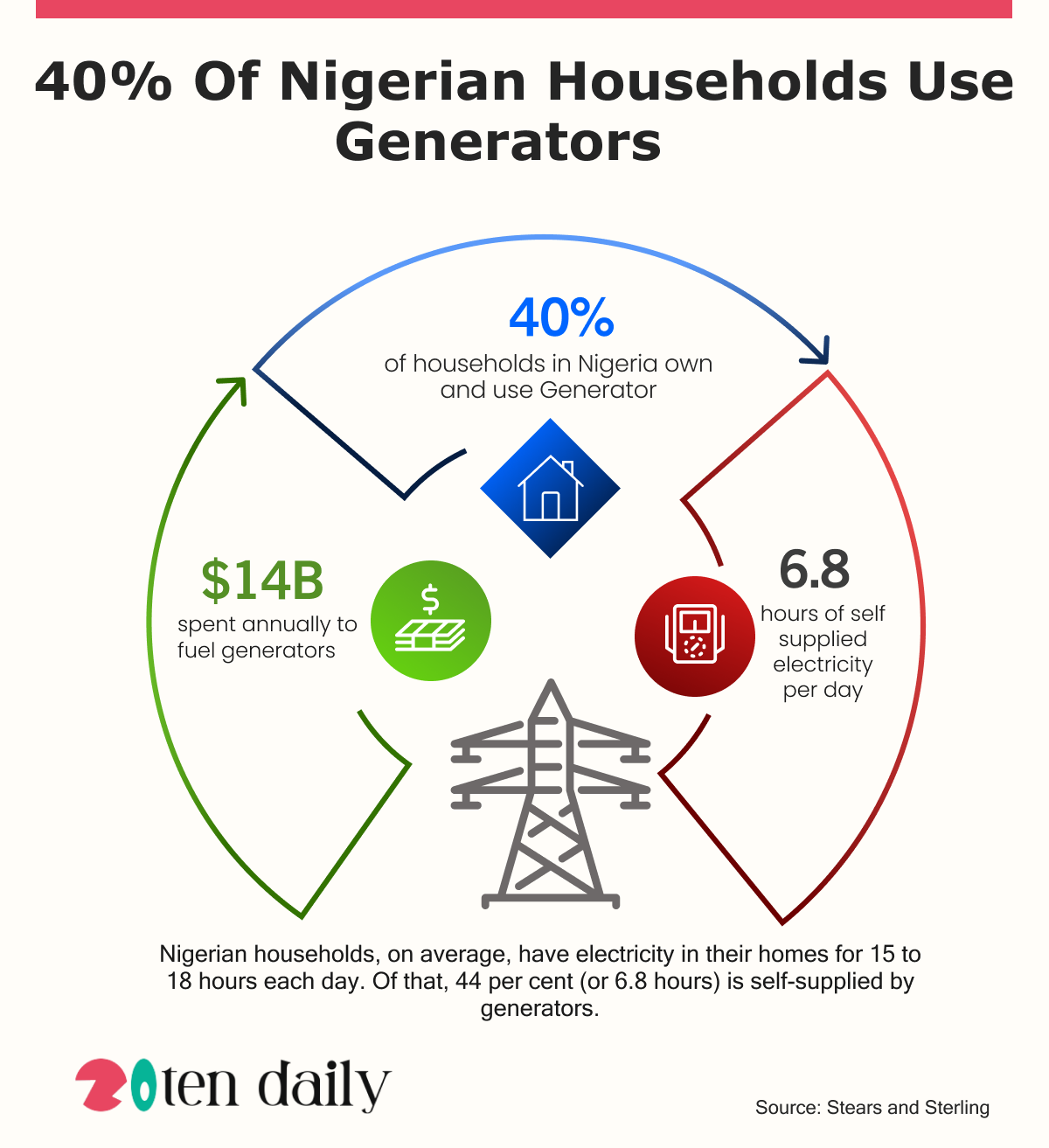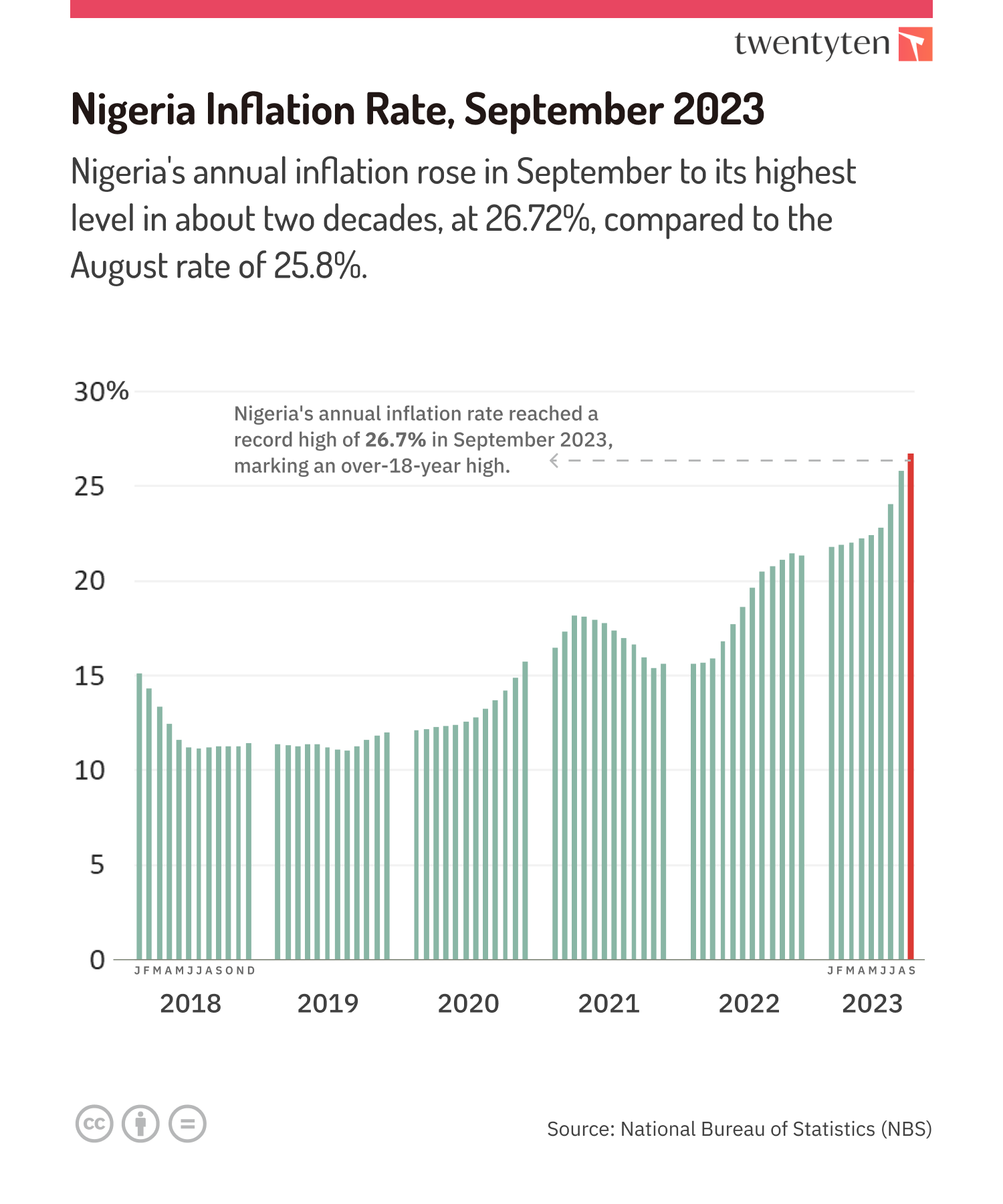40% Nigerian Households Use Generators
A joint report put together by a research firm and a financial institution has shown over 40 percent of households in Nigeria own and use generators to meet their electricity requirements.
According to the report it stated that the affected households spent about $14 billion annually to fuel their generators, as the power supply from the national grid continued to falter.
The June 2022 report by Stears and Sterling, titled, “Nigeria’s State of Power: Electrifying the Nation’s Economy,” stated that the cost expended on diesel and petrol for electricity generation by Nigerians was having severe economic impact on households and businesses.
It read in part, “Nigerian households, on average, have electricity in their homes for 15 to 18 hours each day. Of that, 44 per cent (or 6.8 hours) is self-supplied by generators. And this differs by geography. In a state like Taraba, only 19 per cent of households report having electricity.

“First, the cost of purchasing generators – an estimated $500m between 2015 and 2019, higher than the proposed capital expenditure in Nigeria’s 2022 budget.
“There is also the cost of powering these generators. Sources and estimates vary widely, but the African Development Bank estimated that Nigerians spend $14bn fuelling petrol or diesel powered generators.”
It added, “While PMS (Premium Motor Spirit) or petrol prices have been kept artificially low for the consumers through subsidies, variations in AGO (Automotive Gas Oil) or diesel prices can have a severe impact on households and businesses as Nigerians are currently experiencing.”
The report stated though the National Bureau of Statistics diesel price watch for February 2022 showed a less than 10 per cent rise in the price of fuel from the beginning of the year, diesel was widely sold at prices 200 to 300 per cent up from the end of last year.
This, it said, had made it incredibly difficult for households or businesses to plan and manage themselves.
The analysts noted in their report that while petrol prices appeared more stable, prices were kept artificially low by government subsidies which were generally acknowledged to be unsustainable even in the near to medium term.



